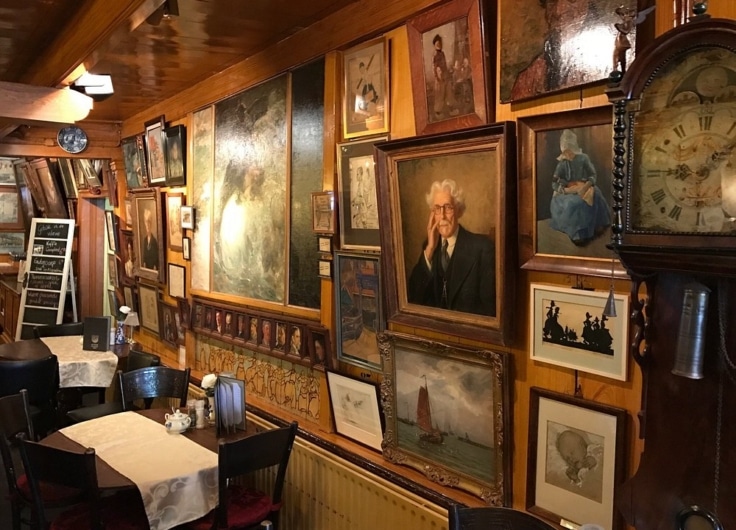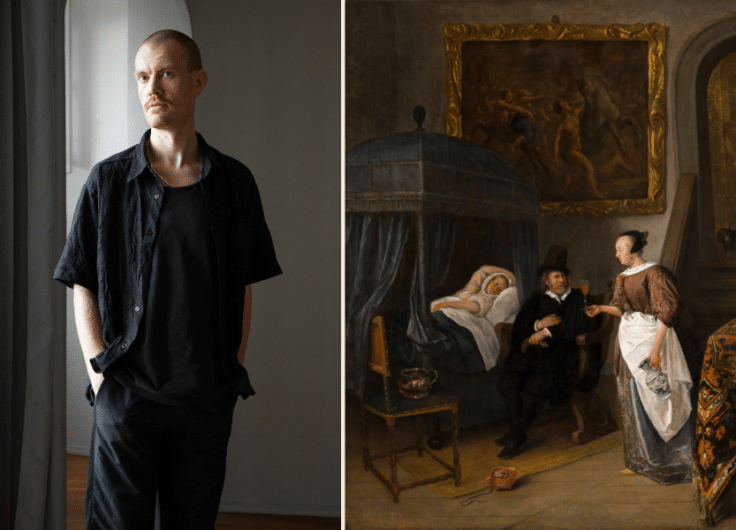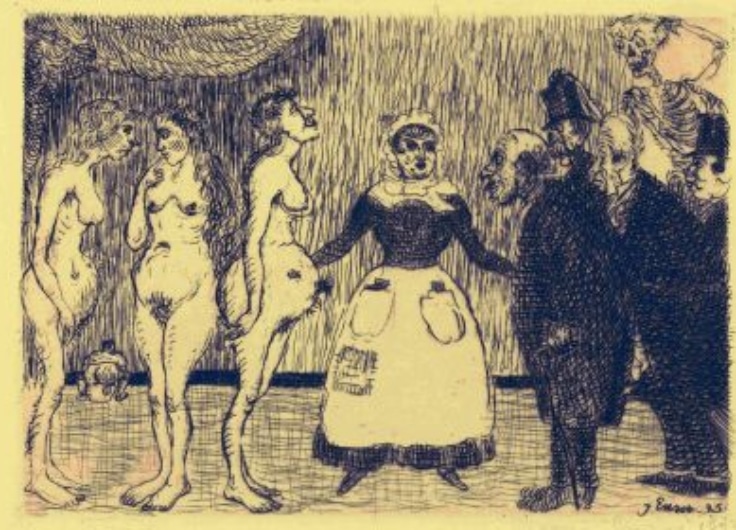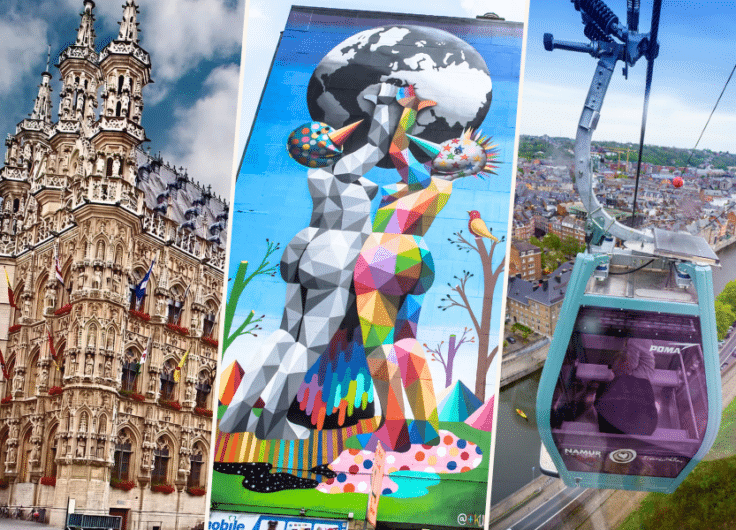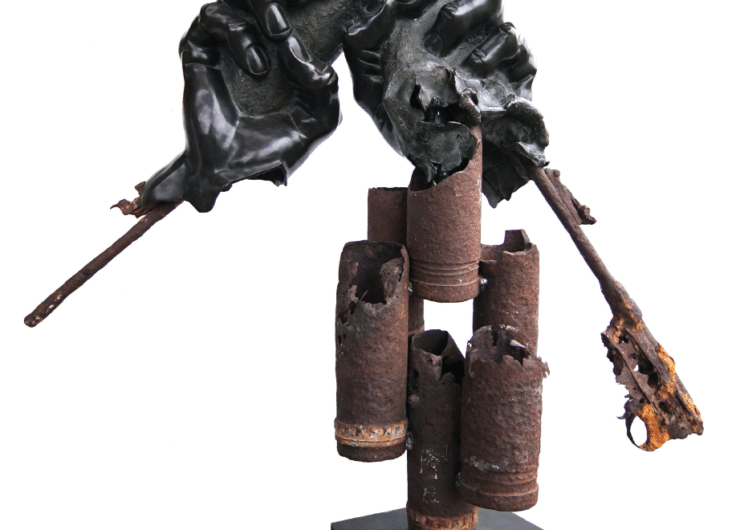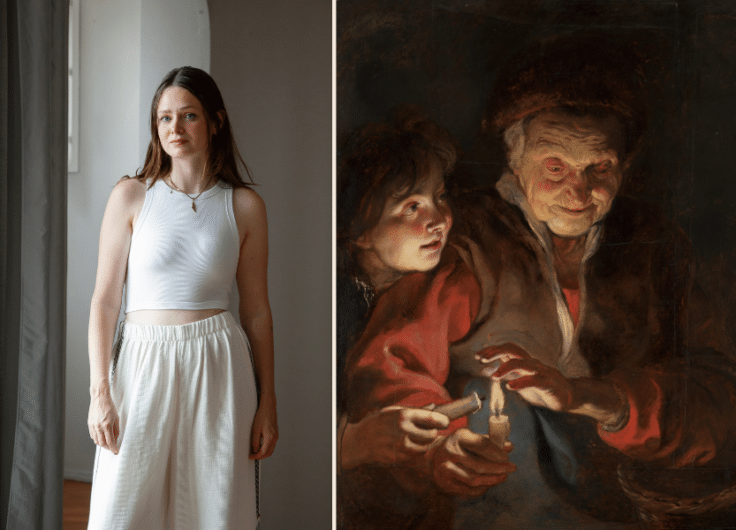Thom Wijenberg: dancers beneath the moon, the moondance
Eighteen young writers from Flanders and the Netherlands have brought nineteenth-century artefacts from the Rijksmuseum to life. They wrote their stories in response to the question: what do you see when you look at these objects through the lens of impending doom? Thom Wijenberg shows us the Diorama of a Du, Dance Celebration on the Plantation, made by Gerrit Schouten. ‘she fears that her pale countenance will catch the light, the scorn, and shame sends her scurrying behind a post with blossom on her cheeks: faja lobi, jungle geranium, carmine red’
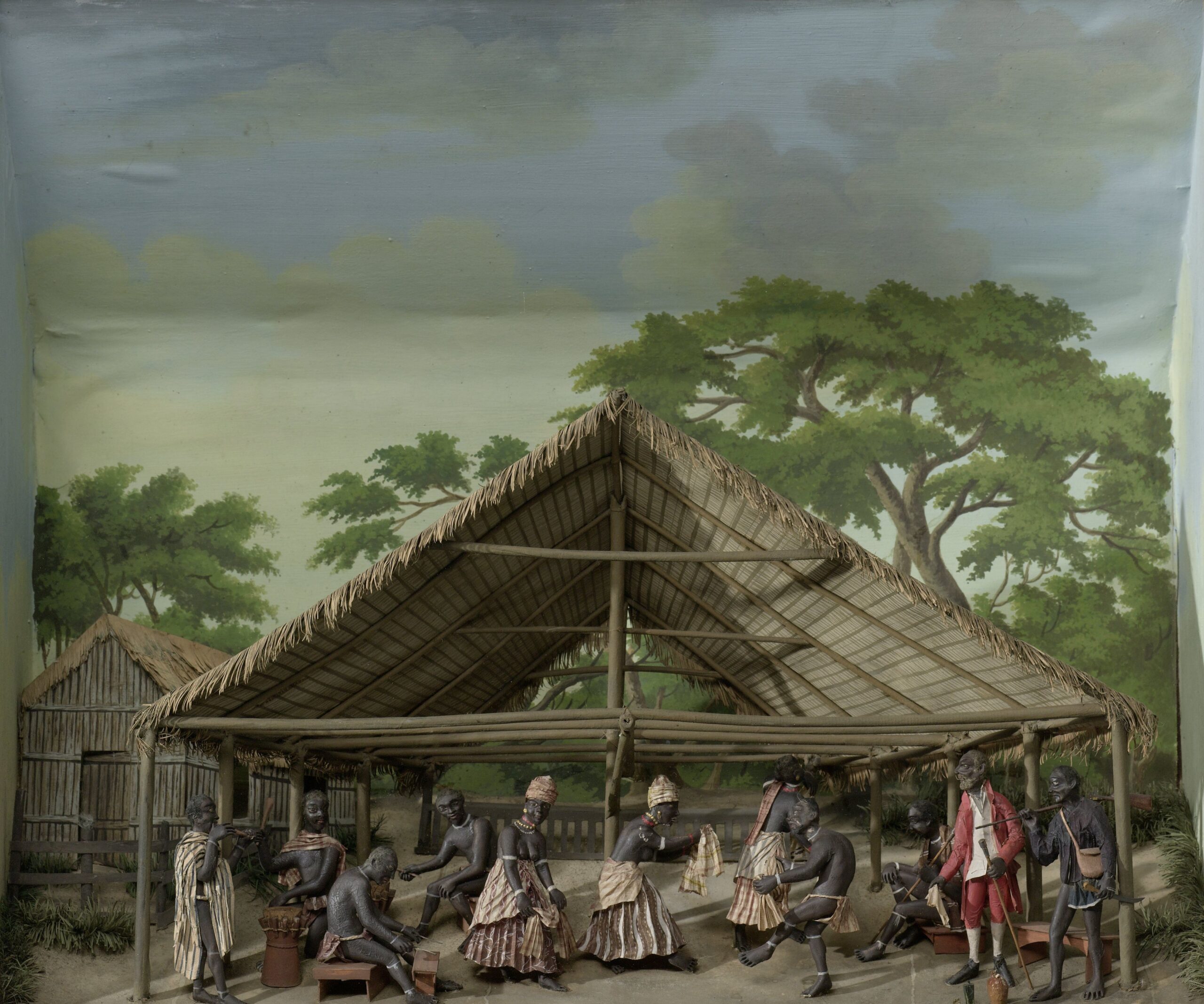 Gerrit Schouten, Diorama of a Du, Dance Celebration on the Plantation, 1830
Gerrit Schouten, Diorama of a Du, Dance Celebration on the Plantation, 1830© Rijksmuseum Collection, Amsterdam
dancers beneath the moon, the moondance
this evening Jacoba sees them dance
under thunder clouds, the dripping roof of palm leaves
she was advised not to go
’tis not for her eyes, say the society ladies who have clocked up more colonial time, so she bolts the shutters against their songs, stays in bed and hopes for a soothing dream, a steamer delivering her to the dawn, at breakfast with her governor spouse she will breathe a sigh of relief: another year’s worth of obedience secured
that was the plan
but the drums, the lilting tune of the loango tou-tou, the oh-so-rhythmic tap-tap-tap of the sticks on the kwakwabangi, the small bench from where Jacoba watches the oxcarts during the day, clouds of dust slowly following the hooves and wandering round the streets of Paramaribo like lost souls – she has all but drifted away, then
tap tap tap, back is the tapping
the nerve-wracking tapping at her door
keeps going until curiosity lifts her out of bed
she clumsily dresses herself, as the skilful hands of the chambermaid are off celebrating, and after a few beats, seconds, she looms, blooms, prematurely in her Sunday best, rosy-pink on the nocturnal stage and she fears that her pale countenance will catch the light, the scorn, and shame sends her scurrying behind a post with blossom on her cheeks: faja lobi, jungle geranium, carmine red
they seem oblivious, the du players
or pretend and dance unfettered, singing in a way that’s new to Jacoba, who knows only the plantation songs, clandestine hymns heard during her husband’s inland excursions, but tonight they turn and spin like whirligigs, swelling and bursting in a frenzy, dark, drunk with joy, while the drums drum, the sticks tick, tap tap tap
they evoke something
they invoke something
an afo, Jacoba thinks, an ancestor or a force
powerful enough to banish the white tyrant and she feels small and pallid like the gifted pearl earrings she spots of a sudden (shock) in the ears of the pikin mama, the mother kneeling on the stage beside the kownu and begging the king to come and get her, not leave her here in the sweltering bush, please kownu, give my beloved a prestigious post back home, mutters the governor’s wife, played by a black lady with white ribbons round her legs
Jacoba does not hear the laughter that follows
or the baying, if that’s what it is
now she knows why she should have stayed in bed
because one day her carefree life overseas will disappear, the hands that serve and support her now will push her away, back into the water from whence she came and like a player in the play, the aflaw, the fainter, she collapses, with a last glimpse of the pearls gleaming white in those coloured lobes and the moon up there coming through on the nocturnal canvas, above the rain forest, flat like cut-out carbon paper, how small that white looks in the big, black night


